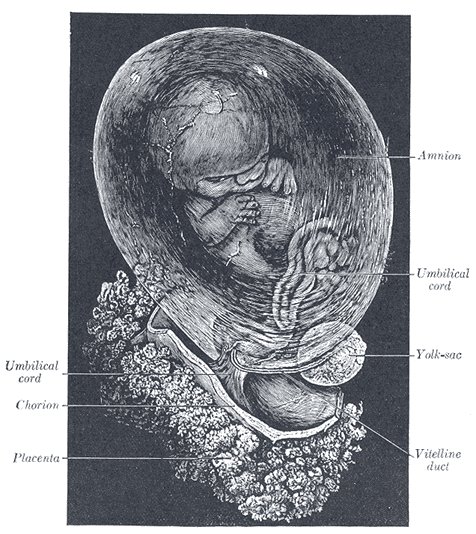Although te hare pure
could alternatively be translated as 'the
house for prayers' this could hardly be more
than a secondary 'joke'.
| 4 |
Dschuba 11 |
12 |
13 |
Azzubra 1 (132) |
| September 22 |
23 |
24 |
25 (268) |
 |
 |
 |
 |
| Ca7-17 |
Ca7-18 |
Ca7-19 |
Ca7-20 (188) |
| tagata - marama |
tagata |
kua moe |
puhi te ahi - rave i te ika |
| Pálida (184.6), Megrez (184.9), Gienah (185.1), ε Muscae (185.2) |
Zaniah (185.9), Chang Sha (186.3) |
Intrometida (187.4), Acrux (187.5) |
γ Com. Berenicis (188.0), σ Centauri (188.1), Algorab (188.5) |
| March 24 (83) |
25 |
26 |
27 |
| Saad Al Akhbia 1 |
2 |
3 (314) |
4 |
| no star listed |
θ Andromedae (2.7) |
Ankaa, κ Phoenicis (5.0) |
no star listed |
| Azzubra 2 |
3 |
4 |
5 (136) |
| September 26 |
27 |
28 |
29 (272) |
 |
 |
 |
 |
| Ca7-21 |
Ca7-22 |
Ca7-23 |
Ca7-24 (192) |
| te kava - erua marama |
e marama noho i tona nohoga |
te hare pure e tagata noho ki roto |
| Gacrux (188.7), γ Muscae (189.0), Avis Satyra (189.3), Asterion (189.5) |
Kraz (189.7), α Muscae (190.2), τ Centauri (190.5) |
χ Virginis (190.7), ρ Virginis (191.4), Porrima, γ Centauri (191.5) |
β Muscae (192.5) |
| March 28 |
29 |
30 |
31 (90) |
| Saad Al Akhbia 5 |
6 |
7 |
8 (319) |
| no star listed |
Delta (8.4) |
Schedir (8.6), μ Phoenicis (8.9), ξ Phoenicis (9.0), Deneb Kaitos, η Phoenicis (9.4) |
no star listed |
Metoro was explicit as regards the glyph at Azzubra 1. Puhi te ahi - rave i te ika, i.e. blow (puhi) on the fire (ahi) in order to make it catch on - take hold of (rave) - in the (cold) 'fish'.
| Puhi 1. To blow; to light a fire; to extinguish, to blow out; he-puhi te umu, to light the fire for the earth oven. 2. To fish for lobsters at night using a bait (but during the day one calls it hî); puhiga, night fishing spot. Vanaga.
To blow; puhi mai, to spring up; pupuhi, wind, fan, to blow, puffed up, to blow fresh, to ferment, to swell, to bloat, to spring out, to gush, yeast; pupuhi vai, syringe; pupuhi eve, squirt; pupuhi heenua, volley; pupuhi nunui, cannon; pupuhi nui, swivel gun; ahuahu pupuhi, amplitude; vai pupuhi, water which gushes forth; pupuhihia, to carry on the wind; hakapupuhi, to gush, leaven, volatilize; puhipuhi, to smoke, to smoke tobacco, a pipe. Churchill |
| Rave Ta.: Rave, to take. Sa.: lavea, to be removed, of a disease. To.: lavea, to bite, to take the hook, as a fish. Fu.: lave, to comprehend, to seize. Niuē: laveaki, to convey. Rar.: rave, to take, to receive. Mgv: rave, to take, to take hold; raveika, fisherman. Ma.: rawe, to take up, to snatch. Ha.: lawe, to take and carry in the hand. Mq.: ave, an expression used when the fishing line is caught in the stones. Churchill 2. |
Azzubra and the following Assarfa (ending with Assarfa 13 as day 157 in the manzil calendar) have no 'leading star', which means there are 26 days 'in darkness'. On the other side of the year compared to Azzubra 1 the day number for Saad Al Akhbia 4 is 'one more' than 314 (= 2 * 157) and this was the day after the heliacal rising of Ankaa and κ Phoenicis, in RA day 5.0.
To make 'fire' catch in the 'fish' there should be a kava ceremony, and instead of repeating something of what earlier has been said about the Polynesian kava custums I would instead like to point to the possibility of a once upon a time common human practice:
... Also, the new 'owner' of the dance had to receive his title from his predecessor, and, from the priests and other qualified dignitaries, the rights attaching to the various phases of the ritual. During these transactions, he solemnly handed over his wife to the man he called his ceremonial 'grandfather', and whose 'grandson' he became, for the purposes of a real or symbolic act of copulation, which took place out of doors at night in the moonlight, and during which the grandfather transferred a piece of root, representing his semen, from his own mouth to that of the wife, who then spat it into her husband's mouth ...
... In the Talmud, the raven is described as having been only one of three beings on Noah's Ark that copulated during the flood and so was punished. The Rabbis believed that the male raven was forced to ejaculate his seed into the female raven's mouth as a means of reproduction ...
The 'shell house' (te hare pure) would receive a new inhabitant, a new little 'fire'. As Metoro expressed it - e tagata noho ki roto (a person resides inside).

|




